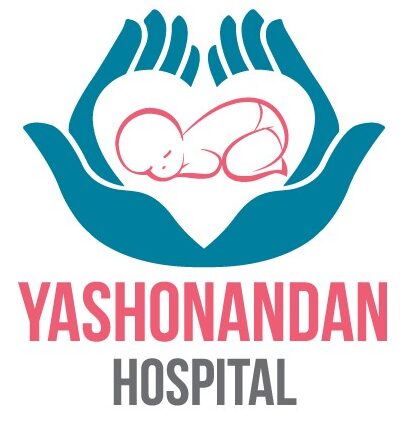Welcoming a newborn into your life is both joyful and challenging. One intriguing aspect of early parenthood is observing the newborn reflexes. These instinctual actions are not just adorable moments; they are important indicators of your baby’s healthy nervous system. Understanding infant reflexes provides critical insights into their development.
Knowing about these neonatal reflexes can equip parents with the ability to assess whether their child is achieving key developmental milestones. It’s crucial to note these reflexes as they reflect a functioning nervous system, offering peace of mind and early alerts if something seems off.
A Closer Look at What Newborn Reflexes Are
In simple terms, newborn reflexes are automatic and uncontrollable movements that infants typically exhibit. They serve significant purposes in both survival and development, like feeding and protection. These neonatal primitive reflexes differ from voluntary actions, as they are involuntary and automatic. While voluntary actions involve conscious decision-making, reflexes occur naturally and are crucial in those early weeks.
Recognizing these nuances helps parents distinguish between what’s instinctual and what’s learned, providing a fuller picture of newborn behavior.
Rooting Reflex and Its Role in Early Feeding
The newborn rooting reflex is an essential component of early feeding. When a baby’s cheek is gently stroked, they turn their head towards the touch and begin to make sucking motions. This reflex aids infants in locating the source of food.
This reflex is most prominent from birth to about four months. Parents can encourage and support this reflex by gently touching their baby’s cheek during feeding times. This not only helps in feeding but strengthens the bond between parent and child. Observing the rooting reflex in infants can reassure caregivers of their baby’s growing capabilities to respond to external stimuli.
Exploring the Sucking Reflex and Its Connection to Feeding
The newborn sucking reflex is another crucial reflex linked to nourishment. Essentially, when the roof of a baby’s mouth is touched, they automatically begin to suck. This sucking action is vital for effective feeding, be it breastfeeding or bottle-feeding.
For premature babies, there may be challenges as this reflex develops later. Understanding the nuances of the sucking reflex helps parents or caregivers adapt feeding strategies, ensuring effective nourishment. It’s a vital aspect of feeding success and promoting healthy growth.
The Startle Reflex: Understanding the Moro Reflex in Newborns
The Moro reflex, commonly known as the infants startle reflex, is fascinating. When a baby feels a sudden loss of support or hears a loud noise, they will extend their arms and legs and then bring them back in, reminiscent of an embrace. This reflex is a normal part of development and usually disappears within two months.
To soothe your baby after experiencing this startle, try holding them snugly or swaddling them. This provides a sense of security. While newborns startle sleep due to this reflex, don’t worry; it’s a part of their normal growth. If it persists beyond the typical timeline, consulting a pediatrician becomes essential.
The Significance of the Tonic Neck Reflex for Movement
The newborn tonic neck reflex, often referred to as the “fencing position,” occurs when a baby’s head turns to one side. Consequently, the arm on that side stretches out while the opposite arm bends up alongside the head.
This reflex plays a role in eye-hand coordination development. While observing this, let the baby explore it naturally. No intervention is needed, as it naturally paves the way for future milestones like rolling over.
Unpacking the Grasp Reflex: Building Bonds & Interactions
The grasp reflex in newborn is a delightful opportunity for bonding. When you place a finger in the infant’s palm, they naturally grip it tightly. This action offers caregivers a tangible connection.
By three to six months, this reflex begins to fade, transitioning into more voluntary reaching and holding. Engaging with this reflex can stimulate neural connections and strengthen parent-child bonds.
The Walking Dance: Observing the Stepping Reflex
The stepping reflex is when newborns appear to take steps when held upright with their feet touching a solid surface. Although these aren’t real steps, they suggest the body is gearing up for walking.
To safely encourage this, provide supportive environments for your baby to mimic walking movements. Typically, this reflex fades by two months but lays down the groundwork for later stages of motor skill development.
Recognizing Abnormal Reflexes: When to Seek Guidance
While most newborn reflexes follow predictable patterns, deviations may occur. Signs of atypical reflexes include prolonged or absent responses. These could signal underlying neurological issues.
Be aware of conditions like a weak or absent Moro reflex or a persistent newborn startle reflex while sleeping. Consulting with pediatricians for unexplained or prolonged reflexes is essential for early intervention and peace of mind.
Nurturing Your Infant’s Reflexes for Optimal Growth
Creating a supportive environment is key for nurturing newborn reflexes. Simple activities like gentle massages, tummy time, and interactive play can stimulate healthy neural and physical growth.
Consider these activities as building blocks connecting reflex actions to future skills. By providing the right stimulation, you’re setting the stage for your baby’s future physical and cognitive accomplishments. Embrace these activities as part of your caregiving routine for optimal growth and bonding.
Conclusion: Understanding newborn reflexes enriches the parent-child journey, equipping caregivers with essential insights to support their infant’s developmental path.
Supporting Your Baby’s First Reflexes with Expert Care at Yashonandan Hospital
From the first grasp to the earliest steps, every newborn reflex tells a story of growth. At Yashonandan Hospital, we’re here to guide you through these precious milestones with care and confidence.
Specialized neonatal care & developmental monitoring
Expert pediatricians for early reflex evaluation
Parental guidance for nurturing healthy development
Book your baby’s developmental check-up today or
Yashonandan Hospital — Caring for every tiny moment, from the very first reflex.

